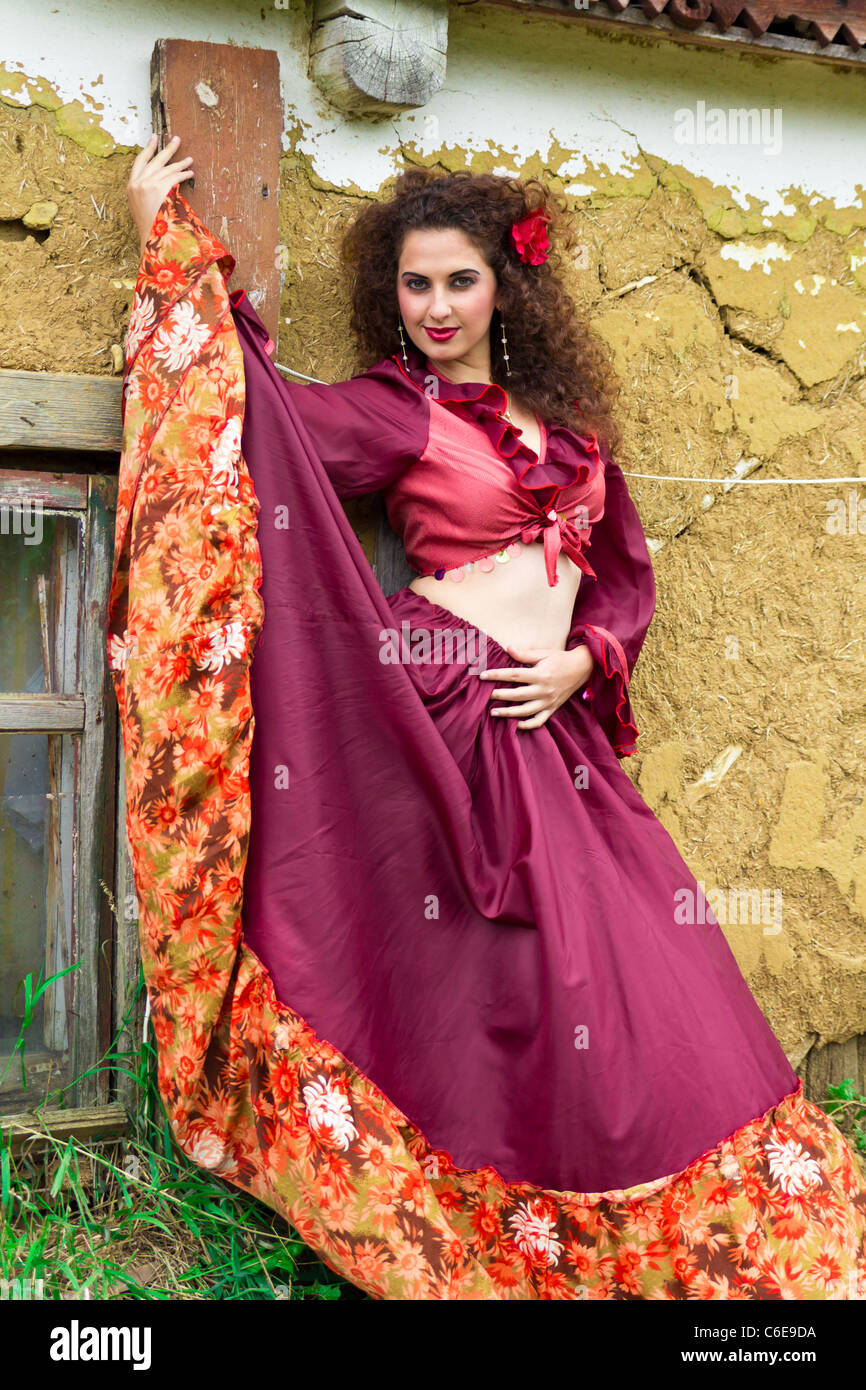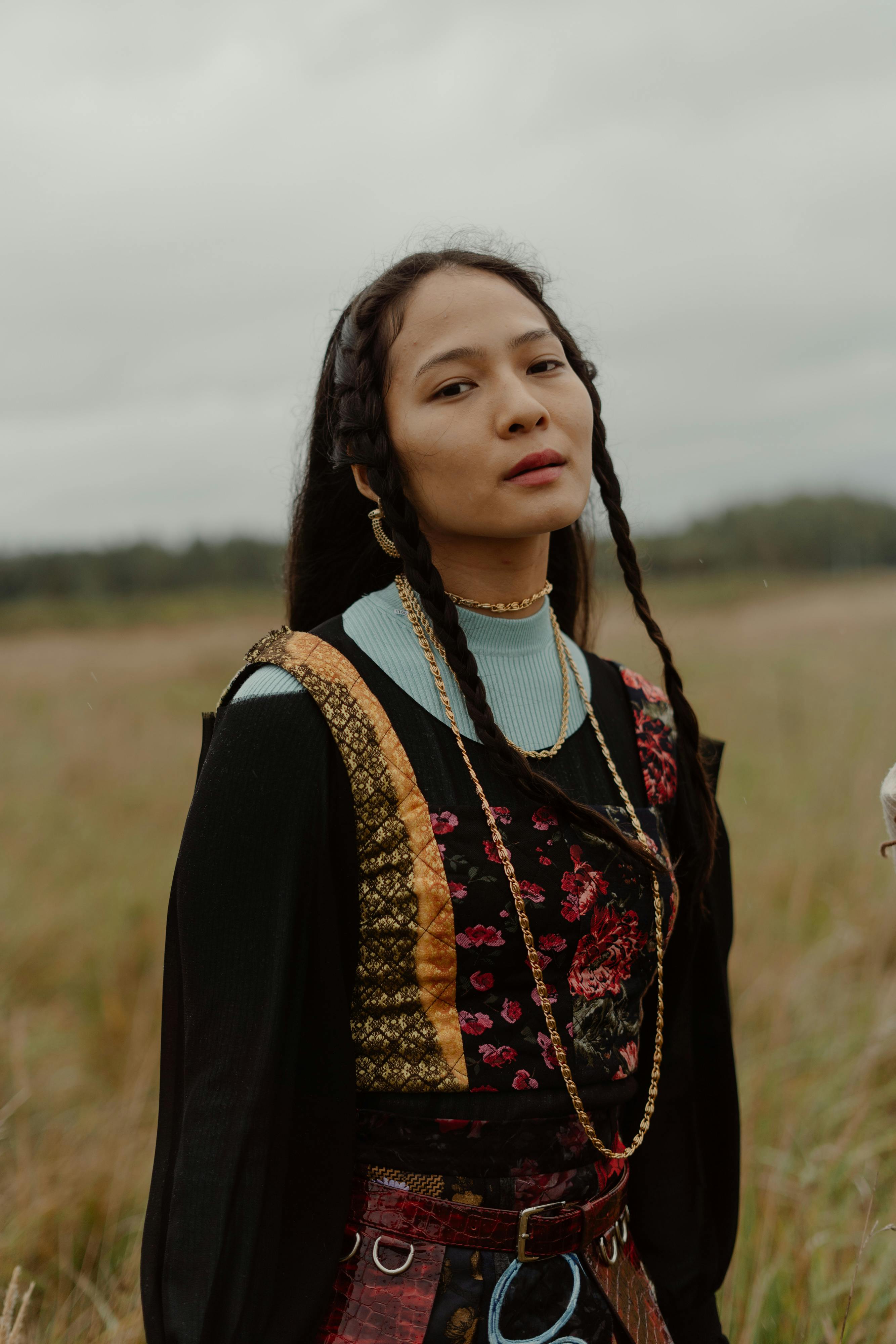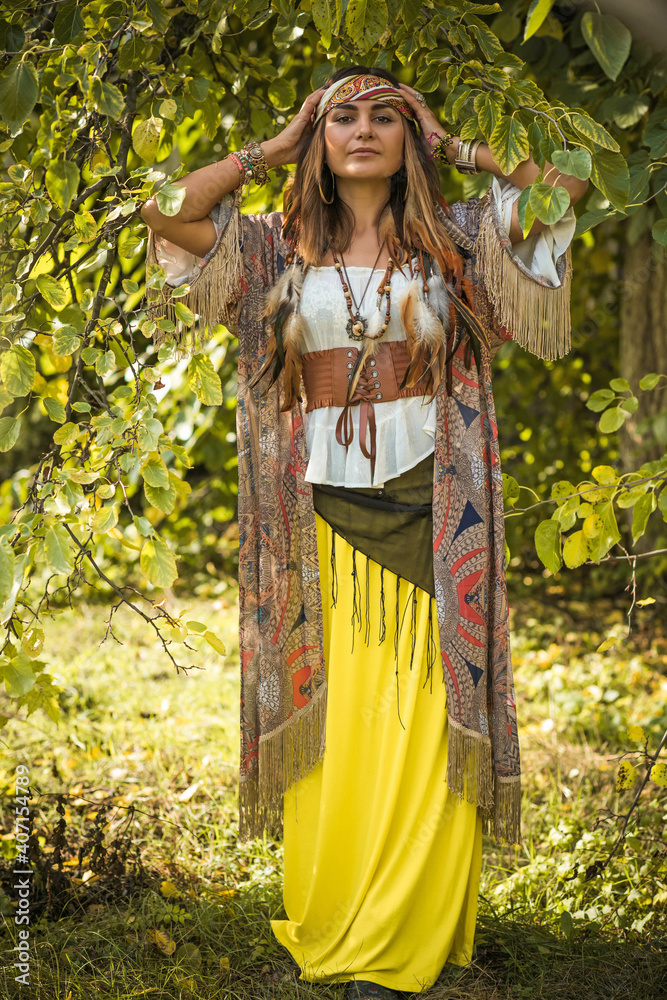Gypsy Rose Nude - Unpacking Online Searches
When you type certain phrases into a search bar, like "gypsy rose nude," it is almost like opening a door to a very wide range of information, some of which might be quite different from what you first expect. People often look for specific things, yet the results can sometimes lead them down a completely different path, showing how complex online information can truly be. It's a bit like searching for a particular type of flower and finding details about a whole garden instead, where each plant has its own story, its own soil, and its own way of growing. This initial search term, in a way, brings up more than just one idea; it touches upon notions of public perception, personal privacy, and the various ways communities are seen.
You see, the internet is a vast place, and terms, you know, can hold many meanings, depending on where they come from or how they are used. What one person intends by a search might be interpreted very differently by the algorithms that sort through countless pieces of data. So, when a phrase like "gypsy rose nude" pops up, it naturally makes you wonder about the layers of meaning beneath the surface, and what kind of information might truly be connected to such a combination of words. It's not always as straightforward as it seems, actually.
Our goal here is to consider some of the elements that might be linked to such a search, drawing from various pieces of information that touch upon the terms involved. We will look at how the word "gypsy" has been used in different contexts, what "rose" might signify in a broader sense, and how the concept of "nude" can relate to ideas of privacy and publicly available details. Basically, we are going to explore the landscape of information that might come up when such a phrase is used, and what that tells us about how we find and process details online, you know, just generally speaking.
Table of Contents
- Understanding the Term 'Gypsy' and Its Context
- What is the real story behind 'gypsy rose nude' searches?
- Where do we find 'gypsy' references?
- Is 'gypsy rose nude' about privacy?
- The 'Rose' in context - what does it mean?
- Exploring 'gypsy rose nude' and public records
- Moving and the 'Gypsy' Lifestyle
- What about the 'gypsy rose nude' term and community perceptions?
Understanding the Term 'Gypsy' and Its Context
When people come across the word "gypsy," it tends to bring up different images and associations for different folks. For some, it might call to mind a specific kind of living arrangement, like the gypsy trailer park located on Shelby Drive, which is found between Swinnea Road and the drivers' license center. This particular place, you know, is a concrete example of how the term has been used to describe certain residential areas. It's a localized reference, pointing to a real spot that people can visit or pass by, giving the word a very specific geographic anchor in some people's minds.
Then there's the "Gypsy Caravan," which is something else entirely. This event, held on Memorial Day for more than 30 years, is known as the Midwest’s largest daylong flea market, antiques, and crafts fair. It takes place on a university campus, which is quite interesting, really. It shows how the word "gypsy" can also be attached to a large, community-focused gathering, a place where people come together to buy and sell goods, celebrating a tradition that has been around for a long time. It's a very different use of the word compared to a residential area, highlighting its versatility in everyday language.
And, of course, there's the mention of Eastern European countries having large Roma populations. The text points out that some people, you know, don't like the term "gypsies" when referring to these groups. This is a very important point, as it brings up the sensitivity around the word itself. It shows that while the term might be used casually in some contexts, it can be seen as outdated or even offensive by the people it supposedly describes. This distinction is crucial, as it reminds us that words carry weight and can affect how different communities are perceived and treated. It's a nuanced thing, isn't it?
Here is some information related to the "Gypsy Caravan" event, which, you know, is a significant cultural happening:
| Detail | Information |
|---|---|
| Event Name | Gypsy Caravan |
| Type of Event | Midwest’s largest daylong flea market, antiques, and crafts fair |
| Frequency | Held annually on Memorial Day |
| Duration | More than 30 years |
| Location | On the campus of the University of [unspecified in text] |
| Prizes Given Out | Over $68,000 in prizes to active forum posters (related to the forum mentioned, not directly the flea market, but part of the broader context of community engagement) |
What is the real story behind 'gypsy rose nude' searches?
When people type in a phrase like "gypsy rose nude," they are, you know, often looking for something very specific, perhaps about a person or a particular kind of content. However, as we've seen, the word "gypsy" itself has a rather complex background, with different uses and meanings that might not align with what a searcher expects. The phrase, in some respects, becomes a kind of gateway to a broader discussion about terms and their connotations, especially when it comes to groups of people. It's a bit like asking for a single piece of fruit and being presented with the entire orchard, where each tree has its own history and story.
The actual story behind such searches, really, isn't just about finding direct answers. It's also about how search engines interpret these queries and what kind of related information they pull up. For example, the text mentions Roma populations and the discomfort some feel with the term "gypsies." This suggests that a search for "gypsy rose nude" might, you know, inadvertently lead to discussions about cultural sensitivity, the history of a people, or even the ethical implications of using certain labels. It's a subtle but important shift from a direct content search to a broader social commentary, which is quite interesting.
So, the "real story" isn't always a simple, direct narrative. Instead, it often involves a deeper look into the various layers of meaning that words carry, and how those meanings can shift depending on context and perspective. It's about understanding that a search term can be a starting point for exploring wider issues, including the way we talk about different communities and the impact our language has. Basically, it's a reminder that online searches can be more about discovery and learning than just finding a single piece of information, you know, in a way.
Where do we find 'gypsy' references?
The word "gypsy" pops up in a few different places, as the provided text shows, and each instance gives it a slightly different flavor. There's the "gypsy trailer park" on Shelby Drive, which, you know, paints a picture of a specific kind of community or living arrangement. This sort of reference often brings to mind a certain lifestyle, perhaps one that is seen as transient or outside the usual norms. It’s a very concrete example of how the word gets used in local descriptions, helping people to locate a spot on a map, really.
Then we have the "Gypsy Caravan" event, which is a whole other thing. This is a big, yearly fair, as a matter of fact, known for its antiques and crafts. It's a community gathering, a place where people come together to celebrate and trade. This use of "gypsy" suggests something more festive, something associated with travel, trade, and a gathering of diverse items. It's a very different vibe from a residential park, showing how the same word can carry completely different connotations depending on what it's attached to. It’s quite a contrast, isn’t it?
And, you know, there's also the address "1318 Gypsy Hill Road" in Ambler, PA. This is a property with owners, Gary D Lassin and Robin S Lassin, and it has a total assessment value, with a clear build date of 1991. This is a fixed, permanent location, which, you know, really stands in stark contrast to the idea of a "gypsy" being someone who moves around. It shows how the word has become integrated into place names, perhaps losing its original nomadic meaning in these specific contexts. It's just another way the word has settled into our language, you know, over time.
Is 'gypsy rose nude' about privacy?
When you consider a search term like "gypsy rose nude," it naturally brings up questions about privacy, especially in the digital age. While the specific phrase might suggest a search for personal or revealing content, the underlying theme often touches upon how much information about individuals is out there, and who has access to it. This is where the mention of registered sex offenders in places like Columbus, Ohio, and Honolulu, Hawaii, becomes quite relevant, actually. These are public lists, you know, available for people to look at, which highlights a tension between public safety and individual privacy.
The fact that there were 1,599 registered sex offenders in Columbus as of July 7, 2025, and 626 in Honolulu as of June 28, 2025, shows that certain personal details, particularly those related to legal status, are made accessible to the public. This kind of information, you know, even though it's for a very specific purpose, raises broader questions about what constitutes "public" information and what should remain "private." It's a fine line, isn't it, between transparency and the right to keep certain aspects of one's life out of the public eye?
So, in a way, a search for "gypsy rose nude" might inadvertently lead one to consider the wider implications of online information, including how personal details are shared, stored, and accessed. It's about the visibility of individuals in a world where data is increasingly available. The concept of "nude" in this context could be seen as a metaphor for vulnerability or exposure, prompting a discussion about digital privacy and the extent to which our lives are laid bare online. It’s a pretty important conversation, you know, when you think about it.
The 'Rose' in context - what does it mean?
The word "rose" in the phrase "gypsy rose nude" is, you know, an interesting element because our given text doesn't really offer a direct explanation for it. In common language, a "rose" is usually a flower, symbolizing beauty or love, or it might be a part of someone's name. When it appears in a search query, especially alongside "gypsy" and "nude," it tends to add a layer of intrigue, suggesting a specific person or a more poetic connection. However, without more information, we have to consider what "rose" might imply in a general sense, or how it contributes to the overall feeling of the search term.
Since our information doesn't give us a direct "rose" connection, we can think about how names, in general, become part of public discourse. People, you know, sometimes become widely known, and their names, or parts of their names, become shorthand for complex stories or situations. So, "rose" here might simply be part of a name that has gained some sort of public recognition, prompting searches. It's a common pattern in how information spreads online, where a name becomes a keyword that opens up a whole world of related content, for better or worse, you know.
Ultimately, the "rose" part of the phrase, in this specific context, acts more as a placeholder for a specific identity or a piece of a larger puzzle that the searcher is trying to put together. It reminds us that online searches are often driven by curiosity about individuals and their stories, even when the underlying information isn't immediately obvious or directly provided. It's a very human thing, wanting to know more about others, isn't it?
Exploring 'gypsy rose nude' and public records
When someone types "gypsy rose nude" into a search engine, they are, in a way, looking for information that might be considered personal or sensitive. This naturally leads us to think about public records and what kind of personal data is actually available for anyone to see. The fact that details about property ownership, like the one for 1318 Gypsy Hill Road in Ambler, PA, are publicly accessible, with names like Gary D Lassin and Robin S Lassin attached, shows how much of our lives can be

Gypsy Woman

Gypsy Photos, Download The BEST Free Gypsy Stock Photos & HD Images

Modern Gypsy